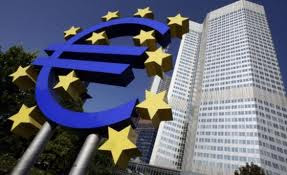European economic growth over the next 25 years could be close to zero, according to Douglas McWilliams, the Gresham Professor of Commerce in his second professorial lecture.
Professor McWilliams predicts world economic growth averaging between 2 and 3% over the period with Europe growing about 2 percentage points more slowly than the world on average.
In the lecture, given jointly with Thras Moraitis of Xstrata and Michael McWilliams of Mott MacDonald, Professor McWilliams drew attention to the environmental conditions necessary for continued growth and to the supplies of minerals, energy, food and water necessary for the industrialisation of the emerging economies to proceed without damaging the developed economies.
He concludes that growth in the developed economies will be held back, running about 1 percentage point more slowly than the world on average, so if world growth is 3%, the developed economies will grow by 2%; if world growth is only 2% the developed economies will only grow by 1%.
But Europe is likely to grow an additional 1% more slowly than the developed world as a whole, so if the developed economies only grow at 1%, then Europe will stagnate.
Factors holding back Europe include the euro. Professor McWilliams concludes that "whatever the underlying economics of the euro - trying to introduce it at a time when the West is losing competitiveness against the East, when Europe in general is losing competitiveness against the rest of the West and when Southern Europe is losing competitiveness against Northern Europe is, to put it mildly, difficult".
He said: "We don't know how the euro problem will pan out but as things stand there seem to be two possible choices - either very slow (and possibly negative) economic growth as the uncompetitive economies try to adjust by internal devaluations (cutting wages etc) or the disruption to banking systems and other institutions that would result from a euro breakup and the consequent defaults."
He also warned that Europe needs to be prepared to adopt the same technologies that other economies are adopting. "Cheap energy is starting to fuel what could potentially turn into a new industrial revolution in the US" while "GM (genetically modified) crops are accelerating the spurt in growth in Brazil that has helped the country overtake the UK to become the world's sixth largest economy...If we in Europe stand back and don't use these new technologies, we will fall even further behind".
Professor McWilliams also warns that the biggest constraint on world economic growth is likely to be the availability of minerals. The lecture draws attention to consistent underinvestment in minerals extraction and increasing unwillingness by the major companies to invest.
Thras Moraitis, Executive Board member, Xstrata said: "Governments are inadvertently hampering the development of much needed new sources of key commodities through a variety of forms of 'resource nationalism'. A symbiotic understanding and approach to resource development between natural resource companies, governments and communities is essential to remove unnecessary bottlenecks in supply."
The lecture also draws attention to the need for investment in energy and water supplies. Michael McWilliams, Worldwide Head of Hydro, Mott MacDonald said: "On balance, my assessment is that there will still be sufficient water in 2035, but there is a need for considerable investment in storage, transfer and treatment infrastructure and in improved food production technology.
View Other Articles
Content Writing Services most people visit to peru
Import Facebook Contacts to Twitter Through Yahoo
Criminal Track Record Examine Get It Shortly On the Net Pcs
A Guide To Churches In London
Youre Not So Special

No comments:
Post a Comment